While our focus on this site is to promulgate Heaven’s messages in private revelations, it is important to acknowledge that anticipation of the Era of Peace is far from restricted to these sources. Quite the contrary, we also see it throughout the Fathers of the Church and the Papal Magisterium of the modern era. What follows are just a few examples. More can be found on “The Popes, and the Dawning of the Era,” and “How the Era was Lost.”
Pope Leo XIII: It will at length be possible that our many wounds be healed … that the splendors of peace be renewed, and swords and arms drop from the hand when all men shall acknowledge the empire of Christ and willingly obey His word…(Annum Sacrum §11)
Pope St. Pius X: When in every city and village the law of the Lord is faithfully observed … there will certainly be no more need for us to labor further to see all things restored in Christ. Nor is it for the attainment of eternal welfare alone that this will be of service—it will also contribute largely to temporal welfare and the advantage of human society … when [piety] is strong and flourishing ‘the people will’ truly ‘sit in the fullness of peace’… May God, “who is rich in mercy”, benignly speed this restoration of the human race in Jesus Christ… (§14)
Pope Pius XI: When once men recognize, both in private and in public life, that Christ is King, society will at last receive the great blessings of [peace] … If the kingdom of Christ, then, receives, as it should, all nations under its way, there seems no reason why we should despair of seeing that peace which the King of Peace came to bring on earth. (Quas Primas §19) [As Jesus taught:] ‘And they shall hear my voice, and there shall be one fold and one shepherd.’ May God … bring to fulfillment His prophecy by transforming this consoling vision of the future into a present reality. (Ubi Arcano Dei Consilio)
Pope St. John Paul II (as Cardinal Wojtyla): We are now standing in the face of the greatest historical confrontation humanity has gone through … We are now facing the final confrontation between the Church and the anti-Church, of the Gospel versus the anti-Gospel. (Final speech before departing the U.S. November 9, 1978) Through your prayers and mine, it is possible to alleviate this tribulation, but it is no longer possible to avert it … the tears of this century have prepared the ground for a new springtime of the human spirit. (General Audience. January 24, 2001) After purification through trial and suffering, the dawn of a new era is about to break. (General Audience. September 10, 2003) God himself had provided to bring about that “new and divine” holiness with which the Holy Spirit wishes to enrich Christians at the dawn of the third millennium, in order to “make Christ the heart of the world.” (Address to the Rogationist Fathers)
Pope Francis: Allow me to repeat what the Prophet says; listen carefully: “They shall beat their swords into plowshares, and their spears into pruning hooks; nation shall not lift up sword against nation, neither shall they learn war any more.” But when will this occur? What a beautiful day it shall be, when weapons are dismantled in order to be transformed into tools for work! What a beautiful day that shall be! And this is possible! Let us bet on hope, on the hope for peace, and it will be possible! (Angelus Address. December 1, 2013) The kingdom of God is here and [emphasis in original] the kingdom of God will come. … the kingdom of God is coming now but at the same time has not yet come completely. This is how the kingdom of God has already come: Jesus has taken flesh… But at the same time there is also the need to cast the anchor there and to hold on to the cord because the Kingdom is still coming… (Our Father: Reflections on the Lord’s Prayer. 2018)
St. Justin Martyr: I and every other orthodox Christian feel certain that there will be a resurrection of the flesh [1]Considering the indefinite article and the contrasting references in the following chapter of his book, this is clearly not a literal reference to the actual Eternal Resurrection of which the Creed speaks. followed by a thousand years in a rebuilt, embellished, and enlarged city of Jerusalem, as was announced by the Prophets Ezekiel, Isaias and others… A man among us named John, one of Christ’s Apostles, received and foretold that the followers of Christ would dwell in Jerusalem for a thousand years, [2]Justin understands this to be symbolic and is not insisting on a literal 1,000-year duration. and that afterwards the universal and, in short, everlasting resurrection and judgment would take place. (Dialogue with Trypho. Ch. 30)
Tertullian: A kingdom is promised to us upon the earth, although before heaven, only in another state of existence; inasmuch as it will be after the resurrection for a thousand years in the divinely-built city of Jerusalem… (Against Marcion. Book 3. Ch. 25)
St. Irenaeus: The predicted blessing, therefore, belongs unquestionably to the times of the kingdom… when also the creation, having been renovated and set free, shall fructify with an abundance of all kinds of food, from the dew of heaven, and from the fertility of the earth: as the elders who saw John, the disciple of the Lord, related that they had heard from him how the Lord used to teach in regard to these times … and that all animals feeding [only] on the productions of the earth, should [in those days] become peaceful and harmonious among each other, and be in perfect subjection to man. (Against Heresies. Book V. Ch. 33. P. 3)
Lactantius: …beasts shall not be nourished by blood, nor birds by prey; but all things shall be peaceful and tranquil. Lions and calves shall stand together at the manger, the wolf shall not carry off the sheep…These are the things which are spoken of by the prophets as about to happen hereafter: but I have not considered it necessary to bring forward their testimonies and words, since it would be an endless task; nor would the limits of my book receive so great a multitude of subjects, since so many with one breath speak similar things; and at the same time, lest weariness should be occasioned to the readers if I should heap together things collected and transferred from all. (Divine Institutes. Book 7. Ch. 25)
Footnotes
| ↑1 | Considering the indefinite article and the contrasting references in the following chapter of his book, this is clearly not a literal reference to the actual Eternal Resurrection of which the Creed speaks. |
|---|---|
| ↑2 | Justin understands this to be symbolic and is not insisting on a literal 1,000-year duration. |

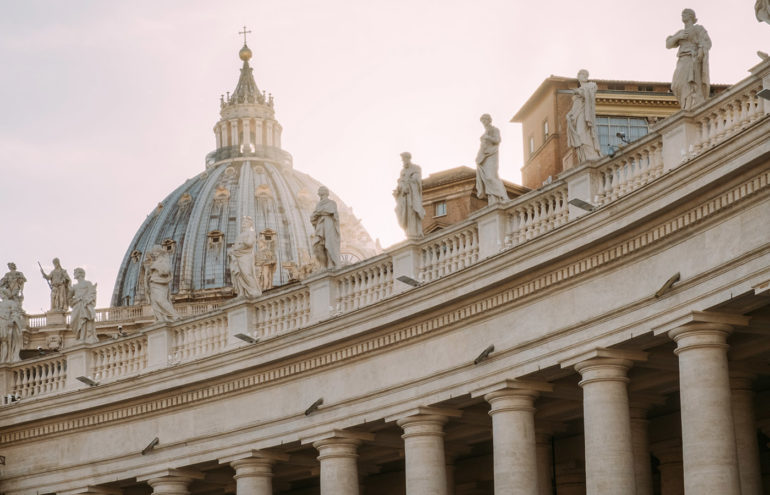

 Alicja Lenczewska
Alicja Lenczewska

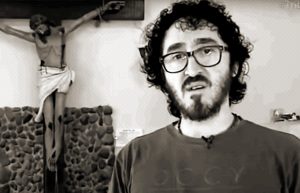

 Elizabeth Kindelmann
Elizabeth Kindelmann Through what became The Spiritual Diary, Jesus and Mary taught Elizabeth, and they continue to instruct the faithful in the divine art of suffering for the salvation of souls. Tasks are assigned for each day of the week, which involve prayer, fasting, and night vigils, with beautiful promises attached to them, laced with special graces for priests and the souls in purgatory. In their messages, Jesus and Mary say that The Flame of Love of the Immaculate Heart of Mary is the greatest grace given to mankind since the Incarnation. And in the not-so-distant future, her flame will engulf the entire world.
Through what became The Spiritual Diary, Jesus and Mary taught Elizabeth, and they continue to instruct the faithful in the divine art of suffering for the salvation of souls. Tasks are assigned for each day of the week, which involve prayer, fasting, and night vigils, with beautiful promises attached to them, laced with special graces for priests and the souls in purgatory. In their messages, Jesus and Mary say that The Flame of Love of the Immaculate Heart of Mary is the greatest grace given to mankind since the Incarnation. And in the not-so-distant future, her flame will engulf the entire world.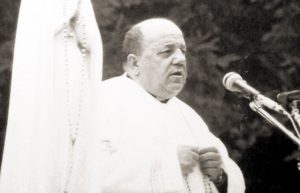 Father Stefano Gobbi
Father Stefano Gobbi Why Gisella Cardia?
Why Gisella Cardia?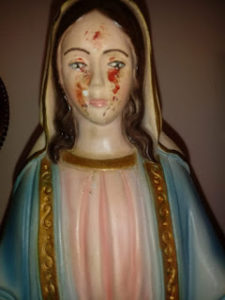 Thirdly, the messages have frequently been accompanied by visible phenomena, photographic evidence found in In Cammino con Maria, which cannot be the fruit of subjective imagination, notably the presence of the stigmata on Giselle’s body and and the appearance of crosses or religious texts in blood on Gisella’s arms. See the pictures taken from her apparition website
Thirdly, the messages have frequently been accompanied by visible phenomena, photographic evidence found in In Cammino con Maria, which cannot be the fruit of subjective imagination, notably the presence of the stigmata on Giselle’s body and and the appearance of crosses or religious texts in blood on Gisella’s arms. See the pictures taken from her apparition website 
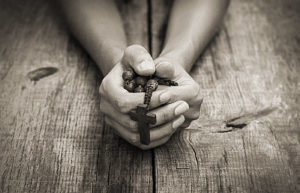 Jennifer
Jennifer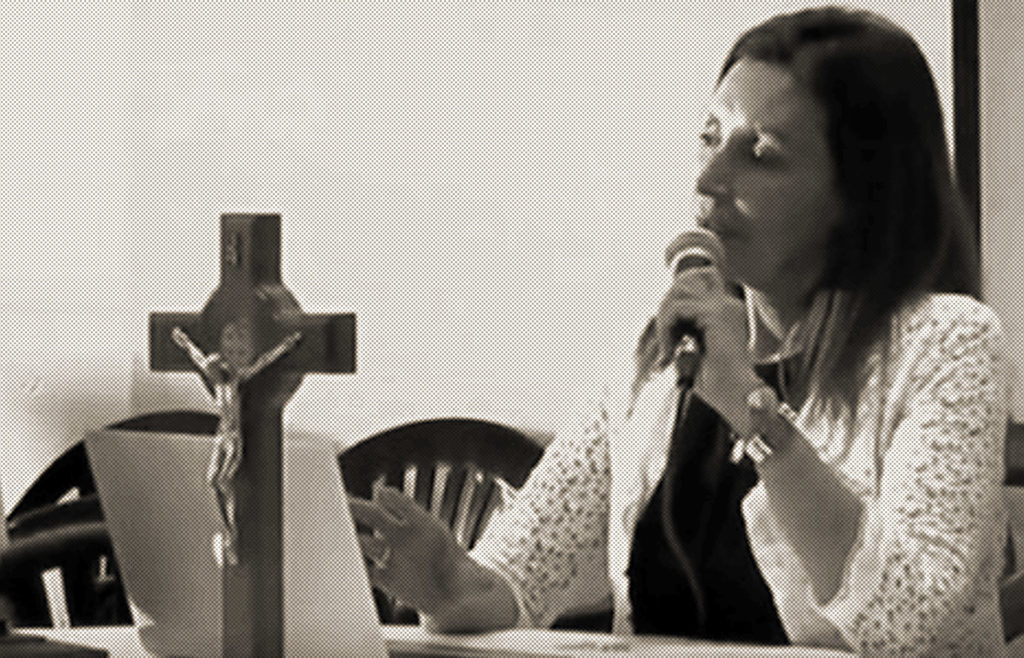
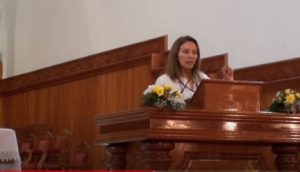
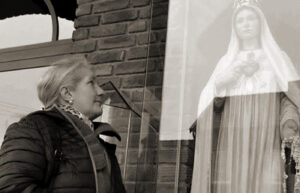 Why Manuela Strack?
Why Manuela Strack?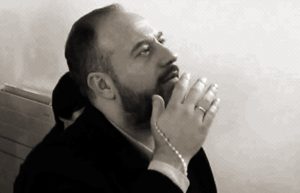

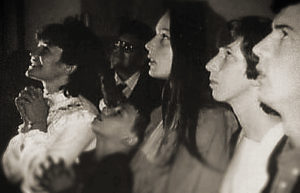 Why the Visionaries of Our Lady of Medjugorje?
Why the Visionaries of Our Lady of Medjugorje?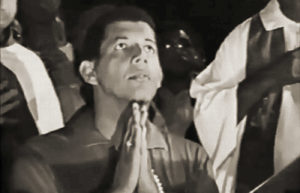 Why Pedro Regis?
Why Pedro Regis? Why the Servant of God Luisa Piccarreta?
Why the Servant of God Luisa Piccarreta? of the saints. It wasn’t until she became a “Daughter of Mary” that the nightmares finally ceased at the age of eleven. In the following year, Jesus began to speak interiorly to her especially after receiving Holy Communion. When she was thirteen, He appeared to her in a vision that she witnessed from the balcony of her home. There, in the street below, she saw a crowd and armed soldiers leading three prisoners; she recognized Jesus as one of them. When He arrived beneath her balcony, He raised his head and cried out: “Soul, help Me!” Deeply moved, Luisa offered herself from that day on as a victim soul in expiation for the sins of mankind.
of the saints. It wasn’t until she became a “Daughter of Mary” that the nightmares finally ceased at the age of eleven. In the following year, Jesus began to speak interiorly to her especially after receiving Holy Communion. When she was thirteen, He appeared to her in a vision that she witnessed from the balcony of her home. There, in the street below, she saw a crowd and armed soldiers leading three prisoners; she recognized Jesus as one of them. When He arrived beneath her balcony, He raised his head and cried out: “Soul, help Me!” Deeply moved, Luisa offered herself from that day on as a victim soul in expiation for the sins of mankind. immobile, rigid-like state that appeared almost as if she were dead. It was only when a priest made the sign of the Cross over her body that Luisa regained her faculties. This remarkable mystical state persisted until her death in 1947—followed by a funeral that was no little affair. During that period in her life, she suffered no physical illness (until she succumbed to pneumonia at the end) and she never experienced bedsores, despite being confined to her little bed for sixty-four years.
immobile, rigid-like state that appeared almost as if she were dead. It was only when a priest made the sign of the Cross over her body that Luisa regained her faculties. This remarkable mystical state persisted until her death in 1947—followed by a funeral that was no little affair. During that period in her life, she suffered no physical illness (until she succumbed to pneumonia at the end) and she never experienced bedsores, despite being confined to her little bed for sixty-four years. Why Simona and Angela?
Why Simona and Angela?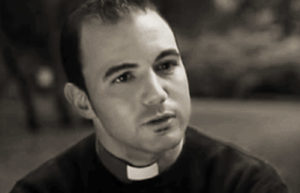
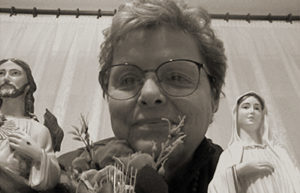 Valeria Copponi
Valeria Copponi